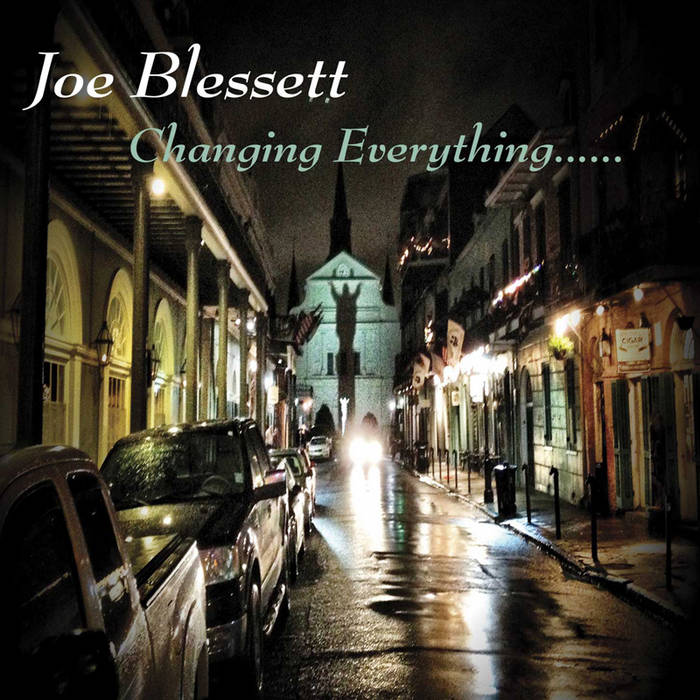Joe Blessett Releases New Jazz Project, “Changing Everything” | Coming Jan. 9th, 2013 | LISTEN!
Joe Blessett “Changing Everything” New Jazz Changing the Sound of Adult Music
Changing the rules and a giving unique interpretation of a new jazz music style. This album stretches out, taking chances and moving a music style out of the background to the front of the line.
Orlando, FL, October 18, 2012 –(PR.com)– Originally to have been released in the summer of 2012, but delayed after attending ASCAP Expo 2012 armed with information from George Duke, Lee Ritenour, Mark Isham and The Smeezingtons. With some material being scrapped, rearranged and more detail applied to approach and create music for a new generation of listeners. Adding a unique visual presence to the project Jeff Adair owner and director of Dream Work Conquer Films a film production company based in Dallas, TX will direct the music video: Talking to Miles.
Changing Everything is a loose and varied sounding jazz album. Titling the project Changing Everything was a smart and appropriate idea because the music’s mood changes, seemingly from song to song.
This album’s title track is stripped down improvisation. It’s highlighted by out-front drums, which are particularly hard-hitting. The bass line wanders nicely while the saxophone lead is fast, furious and echoed. “Giving It,” however, is entirely different. This piece is led by muted trumpet and backed by a rhythmically repeated-note bass groove. It has a kind of late night, groggy feel to it. This work also stands out from the rest for its spoken word part. When drums finally come in, they are used sparingly, yet appropriately. It also has an overall improvised vibe.
With “Seduction of a Dream,” going for something overtly seductive, like the soundtrack music out of a Jim Jarmusch film. It’s the sort of playing that conjures up a neon nighttime scene. The mind’s eye pictures a lonely man either driving through city streets or walking a dimly lit downtown ally.
One song is called “Talking to Miles.” It is assumed that the ‘Miles’ in question is trumpeter great, Miles Davis. It is not, however, a very Miles-y sounding track. With its soulful saxophone lead, it sounds a little more like a David Sandborn tune. However, if you’re looking for something that sounds like Miles Davis, look no further than “White Roses.” Although it also has a ‘70s-ish electric guitar part, the song’s aimless funk groove (calling it aimless is a compliment, by the way), the trumpet-led track has a bit of Davis’ latter day funk-jazz approach going for it. The tune eventually settles into a relatively familiar pop groove. However, its intro is quite Miles-y, indeed.
“Jazz R.I.P.,” brings Weather Report to mind in a big way. The groove is a little off-kilter, while the bass and saxophone interplay has a loose, let’s-just-let-it-rip feel. It is blues-y, yet not at all as something you might expect to hear played at a funeral; the ‘R.I.P.’ designation should not mislead you. Instead, it is light and fun. Toward the track’s finish, an acoustic piano part enters into the mix, a little like the way Zawinul (of Weather Report) used to do it – only his keyboard sections were often times synth parts. After the piano solo comes a walking bass line. All the while, saxophone nicely comes in and out of the mix. It’s a true delight.
Sometimes, all it takes is an intriguing song title to capture your attention. Such is certainly the case with “Amoral Behavior.” This one rolls with a bit of a druggy feel to it. It also has a flute part that comes in and out for brief spurts. It appears to be about someone right at the point of giving into temptation; as though resistance is getting weak and somebody’s about to do something they really shouldn’t do.
There sure is a lot of music to digest on Changing Everything, and most of it is quite good. The artist is not afraid to incorporate modern R&B elements into his music, without ever compromising quality jazz. This is the kind of album that will likely appeal to jazz purists, even though it is not technically pure, straight ahead jazz all the time. The bottom line is that Changing Everything utilizes these various outside jazz elements creatively. The music doesn’t just settle, for instance, with predictable funk-jazz grooves that would make for crowd pleasers in, say, a concert setting. Instead, there’s always a bit of a prickly nature to the compositions that leave them coming off familiar, but nevertheless surprising, in unexpected places.
Change is good, even though the mere thought of changing everything – as the album title appears to encourage — is a little scary. However, when rhythms and melodies are constantly changing in an artistic sense, it is always a good thing, which means there is plenty of aural goodness to be found on Changing Everything.
Joe Blessett Music
